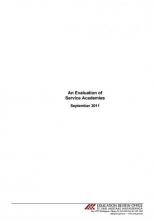Careers education and guidance: Good practice
The report focuses on good practice and showcases 10 secondary schools with high quality careers education. It identifies factors that contribute to high quality careers education and guidance in New Zealand secondary schools.



